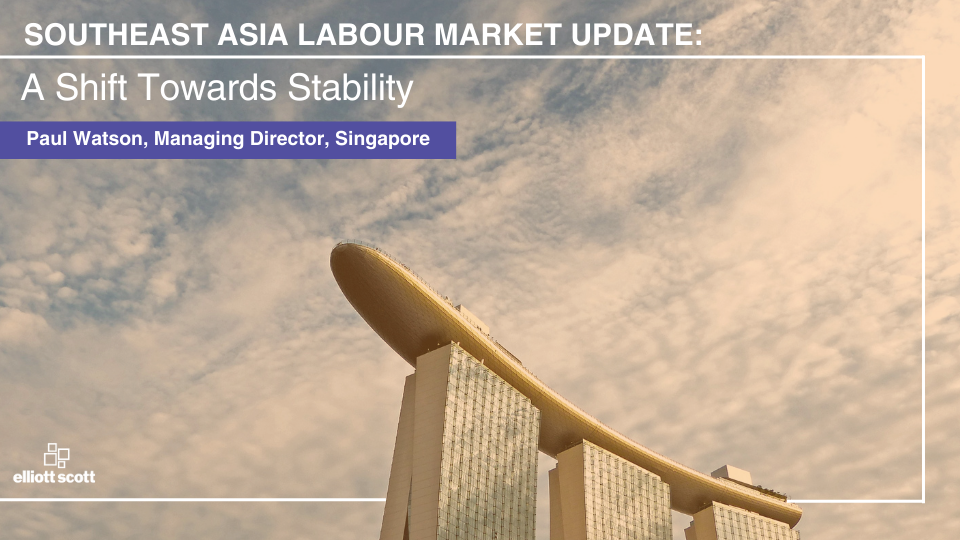Drop off your CV
We serve the global HR community through our offices located in Delhi, Hong Kong, London, New York, São Paulo and Singapore and have placed HR leaders in over 30 countries.
Restructuring Aftermath and Hiring OptimismSoutheast Asia's labour market has experience...

Restructuring Aftermath and Hiring Optimism
Southeast Asia's labour market has experienced significant turbulence over the past year, primarily driven by widespread restructuring efforts. As companies navigated economic uncertainties, layoffs and downsizing became common practices. However, there are emerging signs that the worst of this period may be behind us.
Many organisations have completed their restructuring processes, and a more optimistic outlook is beginning to prevail. Several companies have indicated their intention to make select hires in the coming months, particularly as we approach the end of the year. This suggests a gradual recovery in hiring activity across the region.
Singapore Labor Market: A Snapshot
According to a recent survey by ManpowerGroup, hiring sentiments in Singapore have gained momentum in the fourth quarter of 2024. Out of the 525 employers surveyed, 46% plan to hire, while 17% anticipate a decrease in their staffing levels. This translates to a Net Employment Outlook (NEO) of +29%, indicating a positive hiring outlook.
The Financials and Real Estate sector is particularly buoyant, with a NEO of +64%, making it the most competitive sector in Singapore. This growth is attributed to the increasing emphasis on quantum and AI technologies within financial institutions.
The Great Retention: A Persistent Trend
In addition to the hiring uptick, another notable trend is the continued prevalence of "the great retention." This term, coined in recent articles, aptly describes the market phenomenon where a significant number of candidates are choosing to stay with their current employers. The prevalence of low employee turnover in many organizations has resulted in restricted internal opportunities, limited employee mobility, and a decreased necessity for external hiring.
Several factors contribute to this trend:
As the Southeast Asian labour market continues to evolve, HR professionals will need to adapt their strategies to meet the changing needs of their organizations and employees. By focusing on talent acquisition, retention, and development, HR can help drive business success and contribute to a more stable and prosperous regional economy.